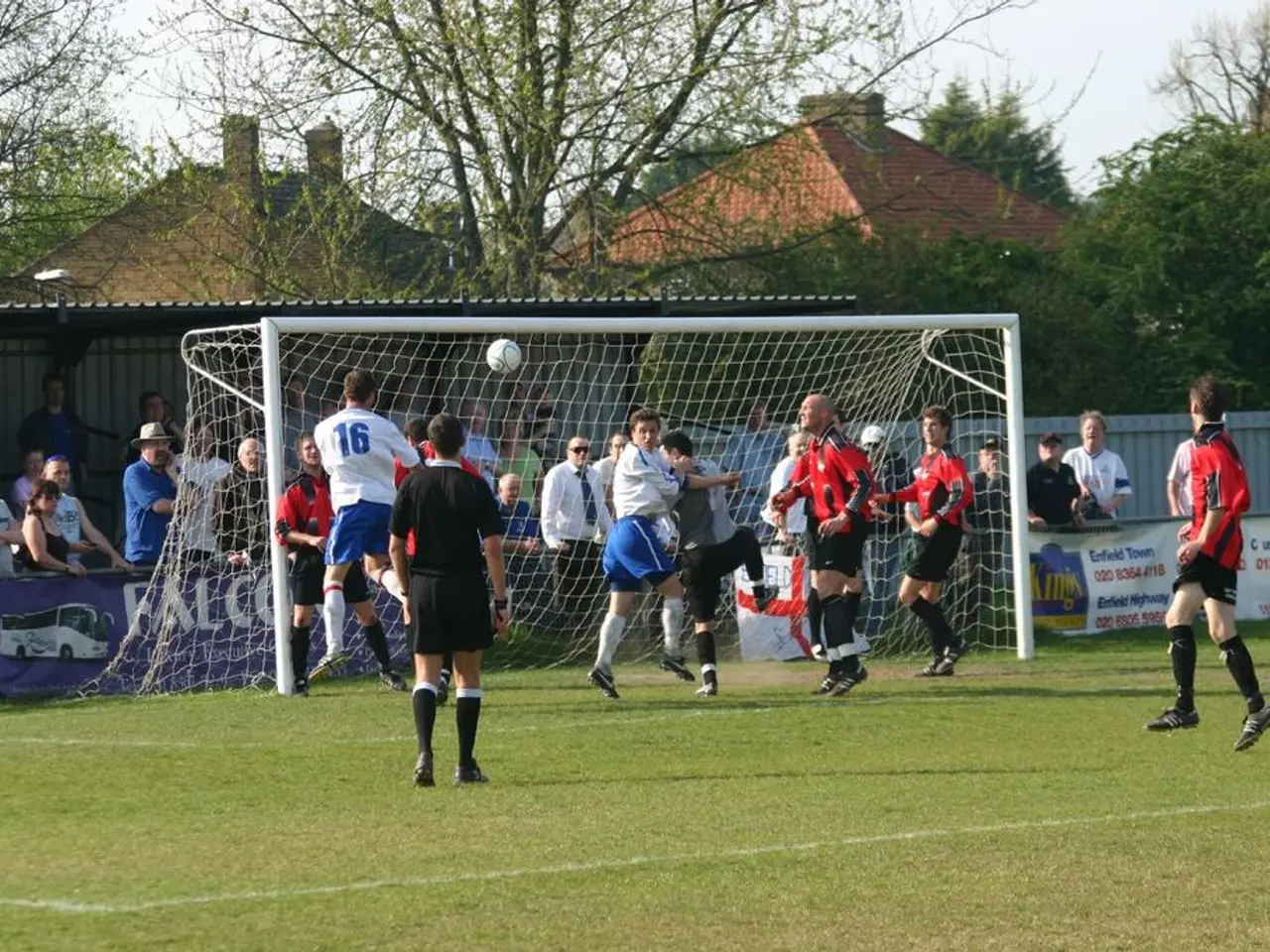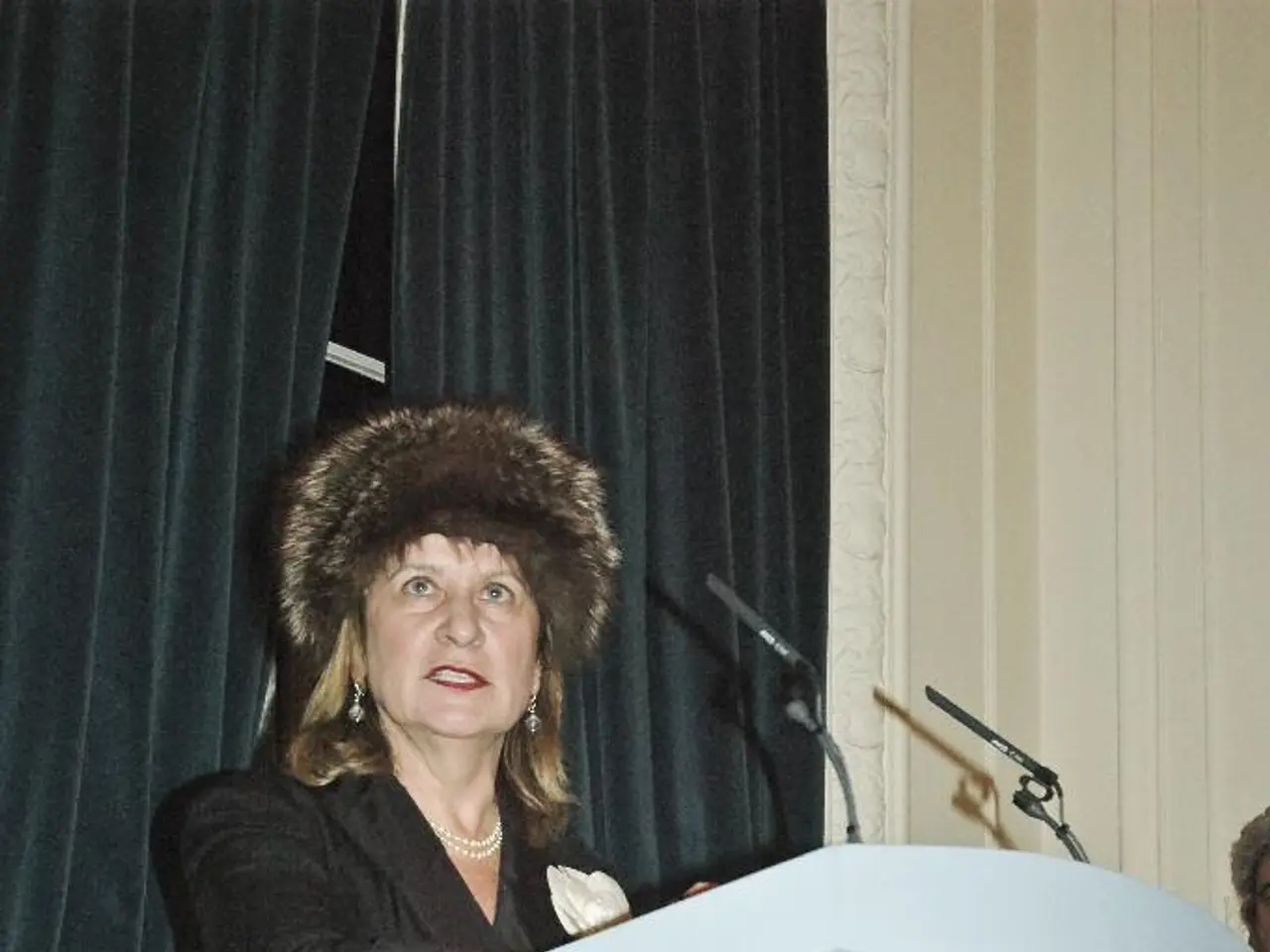"Understanding Escapes Everyone": Both HSV and St. Pauli Supporters Yet to Grasp This Regulation
Longer Added Times Shake Up German Football Leagues
In a shift aimed at ensuring fairness and more actual playing time, referees in the German football leagues have become more rigorous in accounting for all lost time during matches, resulting in longer added times, particularly since the 2022-2023 season.
This change is consistent with a broader trend in football worldwide, where more exact and reactive timekeeping has been adopted in many top leagues. The German leagues, including the Bundesliga, 2nd Bundesliga, and 3rd Liga, have aligned with this global shift.
In the recent 3rd Liga, three teams managed to score after the 90th minute, with Wehen Wiesbaden extending their lead due to added time. Similarly, in the 2nd Bundesliga, at least 5 minutes of added time were played in the 2nd half in all matches except for Hannover 96 vs. 1. FC Kaiserslautern.
The new guidelines, aimed at achieving greater transparency, have resulted in many goals in added time for the Bundesliga season starting on August 22nd. For instance, Arminia won their 2nd Bundesliga match against Fortuna Düsseldorf with a score of 5:1, with the final goal scored in the 7th minute of added time.
In the 3rd Liga, the average added time in the 2nd half was 6.8 minutes across 10 matches. The generous overtime was notable in both the 2nd Bundesliga and 3rd Liga, similar to the marathon games at the 2022 World Cup in Qatar.
Alex Feuerherdt, head of communication and media at DFB Schiri GmbH, announced the changes. Injury treatments, interruptions due to external influences, VAR interventions, and longer VAR checks will be included in real-time. The goal and substitution times are generally recorded in 30-second increments.
The VAR assistant will take over the task of communicating the minimum added time to the referee after prior agreement with the VAR and a plausibility check in each half. For example, Paderborn used the extra time to score a goal in their 2nd Bundesliga match against Holstein Kiel, securing a 2:1 win.
Mitch Kniat, coach of Arminia, was surprised by the long added time in their 2nd Bundesliga match. Former HSV player Filip Bilbija scored for Paderborn in the 9th minute of added time, securing a win.
Starting from the 2025/26 season, the length of added time will be more closely adjusted to the actual time lost in German top leagues. The final decision regarding added time remains with the referee.
This change has also been evident in the lower leagues, with 1. FC Saarbrücken and Jahn Regensburg each scoring an equalizer in their 3rd Liga matches due to added time. Fans will also have to get used to longer added times for the games of HSV and FC St. Pauli in the Bundesliga.
In light of the global trend towards more precise and active timekeeping in football, the German leagues, including the Bundesliga, 2nd Bundesliga, and 3rd Liga, have extended added times, causing late game-winning goals in matches such as Arminia's 2:1 victory against Fortuna Düsseldorf with a goal scored in the 7th minute of added time.
European leagues, like the German ones, are experiencing increased added times due to referees accounting for all lost match time, with this shift continuing until the 2025/26 season in the German top leagues.






